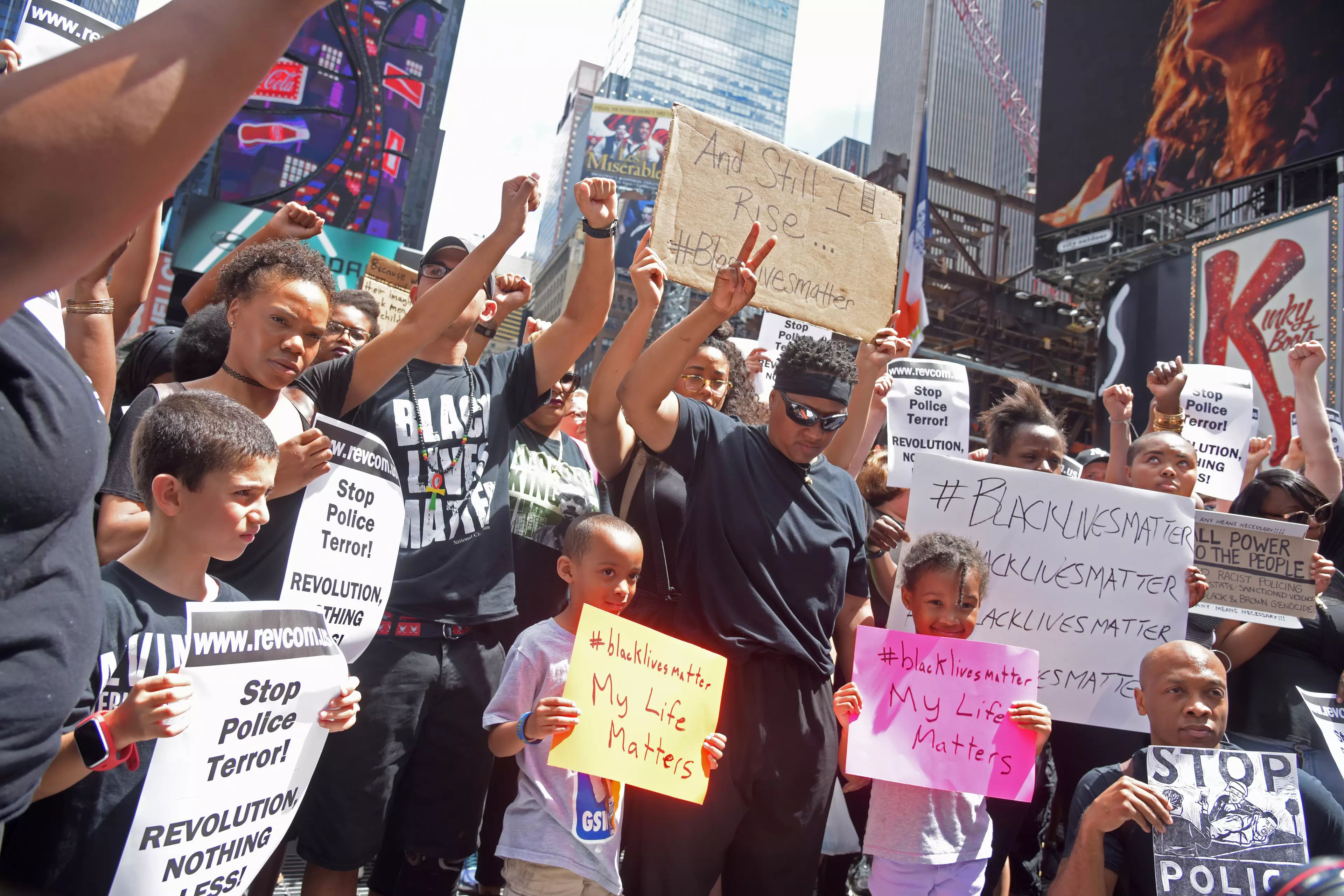
Featured image: Getty
So far in 2016, the number of people killed by the police in the US stands at 598. The number of black people killed by the police in the US stands at least 148. Recently, Philando Castile, just 32, was gunned down during a routine traffic stop in Minnesota on Wednesday. One day prior to that, 37-year-old Alton Sterling, a father of five, was shot and killed by two Baton Rouge police officers in Louisiana. Pinned to the floor and seemingly unable to move an inch, one of the officers exclaimed "He's got a gun!" before firing several shots at a still-restrained Sterling.
Today we reported about Charles Kinsey, a black gentleman who was shot in the leg by police while he tried to get an autistic patient under his care back into the facility. Kinsey was on the floor and had his hands in the air. It is reported his patient may have been carrying a toy that was mistaken for a gun. Kinsey is said to have exclaimed: "Sir, there's no need to firearms", before being fired upon. Thankfully, he's likely to make a full recovery and be out in a week.
Advert
What strikes me, as it might other people about the Castile murder, is that his girlfriend streamed the aftermath of the shooting on Facebook Live. The idea of something like that happening in the UK is so alien to us that it's hard to imagine reacting in anything but hysterics. Castile's girlfriend felt not compelled to plea for help or devote herself to whatever time her boyfriend had left, but to immediately disclose what had happened and where, as well as who was responsible. A grim state of affairs where people are inclined to act on a legal motive over a personal one.
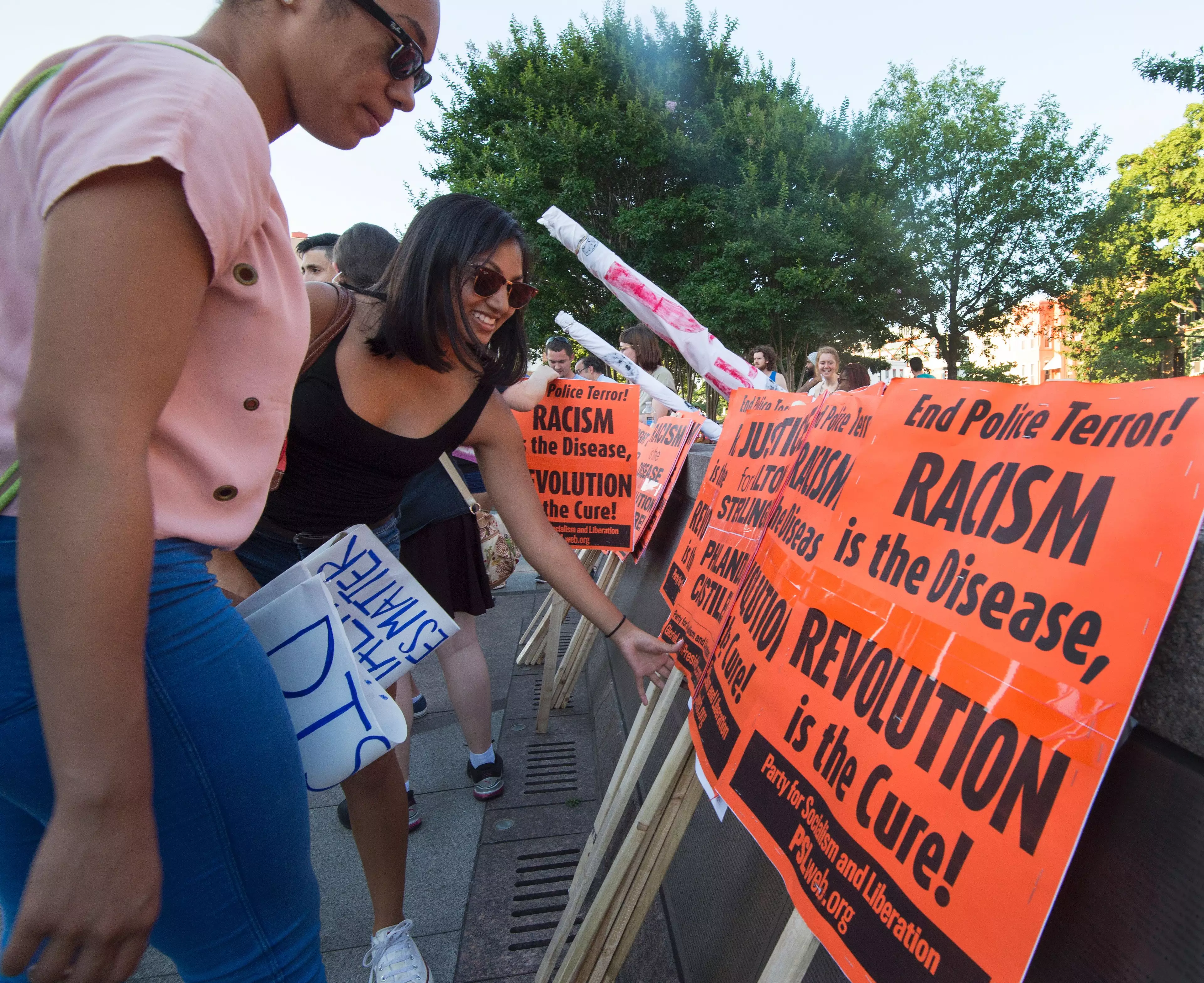
Image: Getty
'The Counted', a Guardian listing that tracks the number of Americans killed by law enforcement, also shows that 297 white Americans have been killed by the police this year - of course, equally as tragic. But is there something at play with that? When you factor in black Americans only making up 12.6% of the country's population, the rate at which they're being caught up in these horrorshows seems bewilderingly disproportionate.
Advert
I think the statistics of those who haven't been shot by the police are key to understanding this ongoing tension. According to a 2015 study, six out of 10 black men claimed they had been mistreated by police because of their race, while The Counted's data found black males aged 15 to 34 were nine times more likely to be killed by police officers than any other demographic.
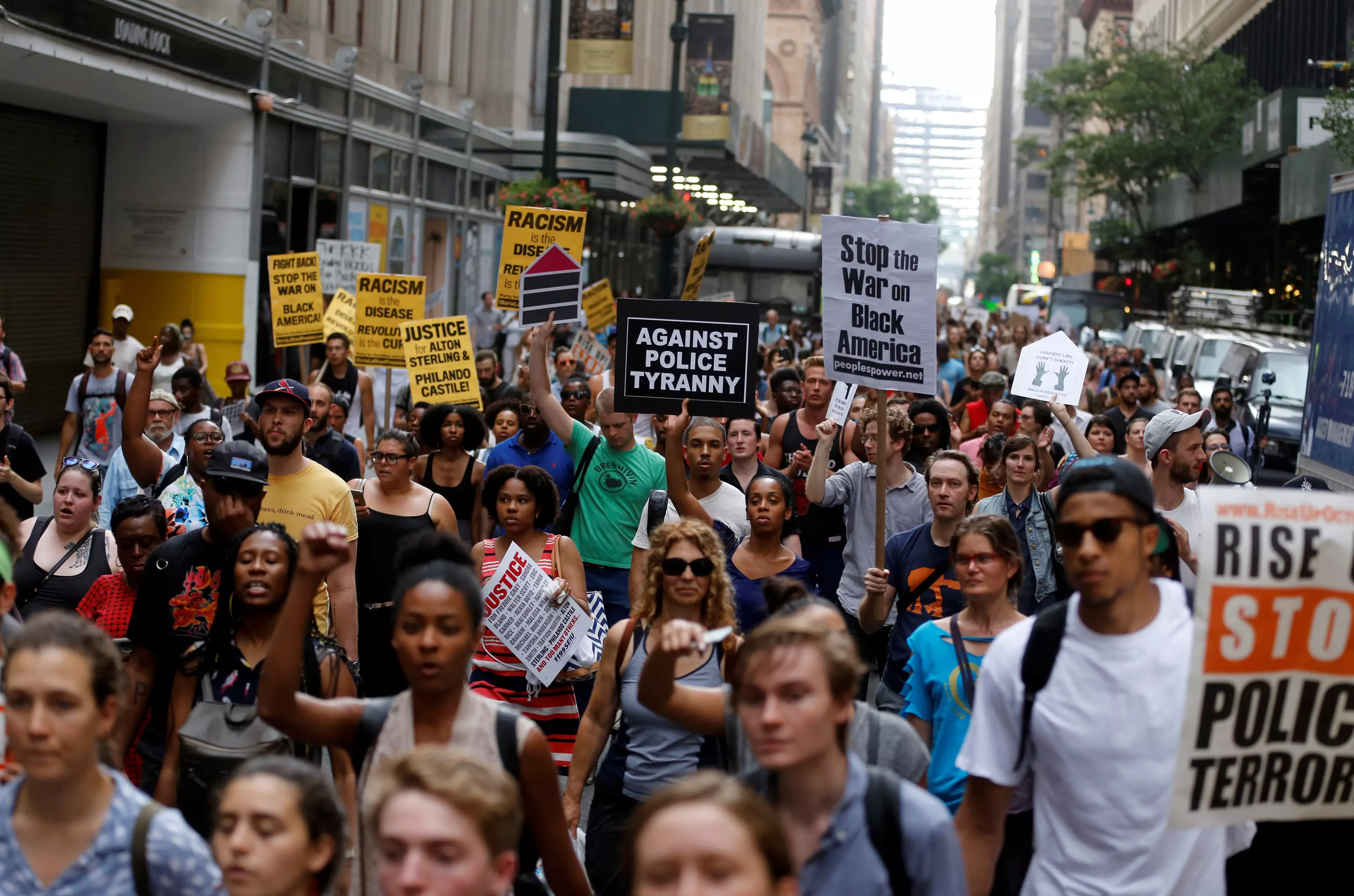
Image: Getty
The race relations between the black and white demographics has obvious foundations in slavery, but when it comes to police and state-sponsored brutality, it spans more than a century, going back to the Emancipation. Though lynching acted as the most popular form of violence against black people in the US from 1882-1910, it remained the norm for at least two decades after. Approximately 3,000 black people were lynched between 1882 til 1930, when legal executions replaced lynching as a method of social control.
Advert
The most obvious tensions in relations between the police and the African-American community are evident in the formation of the Black Panther movement, and their famous slogan 'Power to the People!' The party J. Edgar Hoover, the FBI chief, branded "the greatest threat to the internal security of the country."
The BPP was formed in California in 1966 by Huey Percy Newton and Bobby Seale, who were underwhelmed and impatient with the achievements of Martin Luther King and the Civil Rights Movement. Although generally a black nationalist party, the BPP were also there to serve any minority group oppressed by the state, as well as stress the importance of educating America on the true history of black people and their role in present-day society.
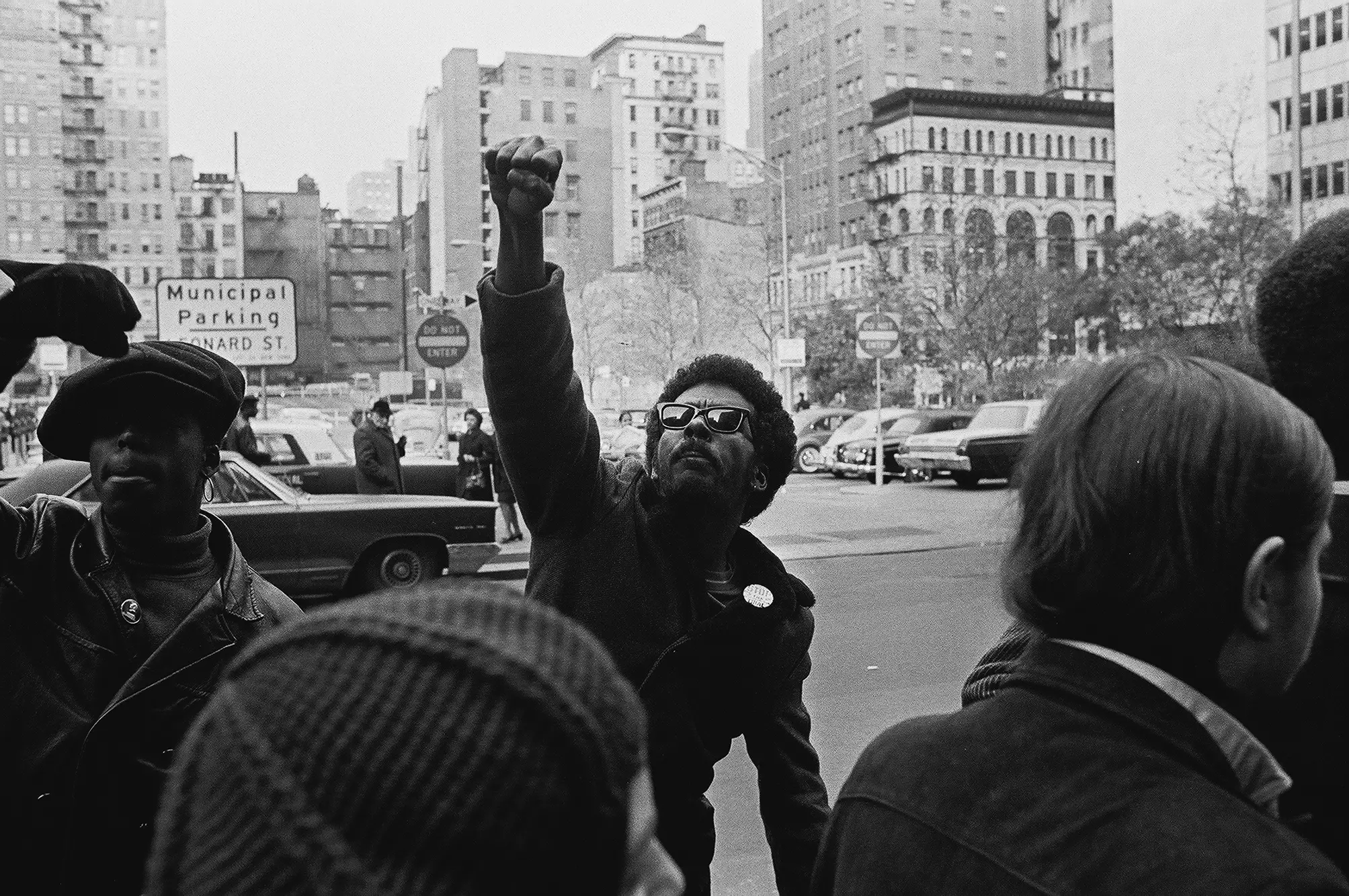
A Black Panther demonstration. Image: Getty
Advert
One of the notable events in its short history came on December 4, 1969, when the FBI provided the information needed to raid an Illinois Black Panther Party head's apartment, in which two Black Panthers members were killed by gunfire. The attack became known for its disproportionate bullet-count. Evidence revealing that the police fired up to 99 bullets later came to the public's knowledge. The Panthers may have shot one. Another reason it solidified itself as one of the key events of the Panther movement is because the information required for the break-in was procured by a member of the FBI in a time when surveillance of the domestic group had been approved.
Newton and Seale distanced themselves from guerilla tactics in 1972, while chief publicist for the BPP, Eldridge Cleaver, maintained his position on a black insurrection - a split which eventually led to Newton and Seale completely leaving the party in 1974. Following their resignations, the BPP began to fade as a reliable and positive force for good within black America. In 1982, it all dissolved. The sentiment of the black community then fell into the hands of hip hop artists, which had reached its golden age by the late 1980s, spurring now-classic anthems like NWA's 'Fuck tha Police' and Public Enemy's 'Fight the Power'. After the L.A riots happened, police tension remained at boiling point and nothing was truly assembled to try and topple it. It was only until recently that the plight of black America once again came together as a political force.
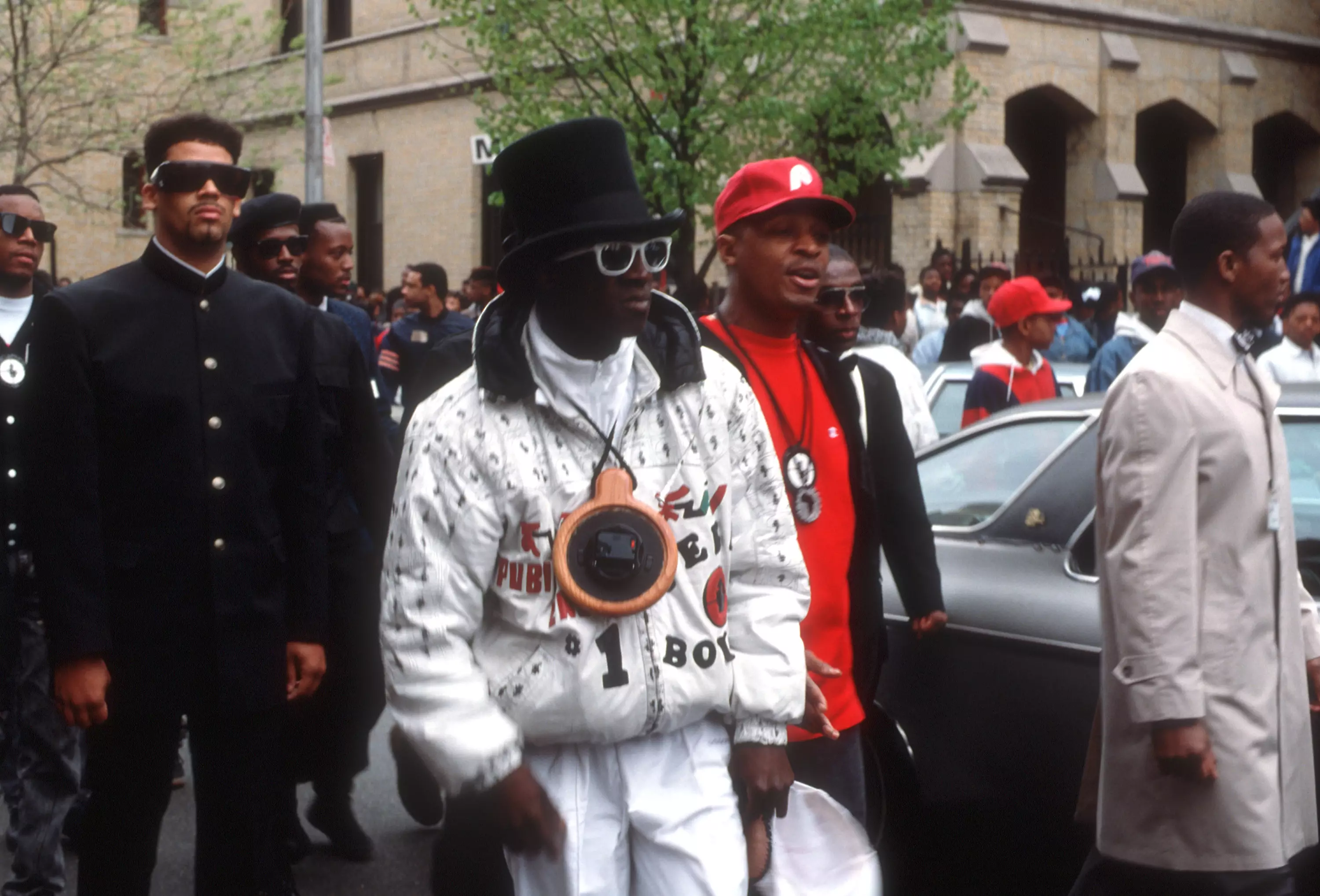
Public Enemy filming the music video for 'Fight the Power'. Image: Getty
Advert
Black Lives Matter, a now-international activist movement, unlike previous organisations, was not really formed on purpose.
Sat in a cocktail bar in Oakland California on July 13, 2013, workers-rights activist Alicia Garza witnessed the breaking news that George Zimmerman had been acquitted in the shooting of Trayvon Martin - an unarmed black teen killed in a gated Florida suburb - and irate by the verdict, took to Facebook to post a status, which she concluded: "Black people. I love you. I love us. Our lives matter." Fellow activist and friend, Patrisse Cullors, added the hashtag and the rest is history.
Black Lives Matter is now the most popular civil rights movement in America. A group that seeks to serve not just the simplified and limited terminology of black people that white males like myself are often guilty of bolstering, but the sub-cultures and sexes, too. There's no doubt that the role of LGBT voices within BLM has contributed greatly to its growth, and that includes Alicia Garza herself, who is married to a transgender spouse and identifies as 'queer'. DeRay Mckesson, another one of BLM's most prolific activists, is also gay.

Alicia Garza. Image: Getty
So they've got the backing, they've got the rhetorical skills and platform. How do they run with it? How do we run with it?
My hunch is the group will continue to push for a reformation within the police, who they believe tend to protect their bad apples. A route which sounds as simple as it does delusional. But to resign minorities to defeatism is how the heads stay in power. That's how they've always controlled them. I truly believe protests will lead to the punishment of police officers who breach the public's credence. This was most evident and in its darkest form in Dallas last week.
We've got to put an end to this tribal "us vs. them" soap opera - which as I've said before simplifies a much more complex situation - yet at the same time be able to call a spade a spade and prosecute those responsible for countless innocent deaths.
Words by Josh Teal